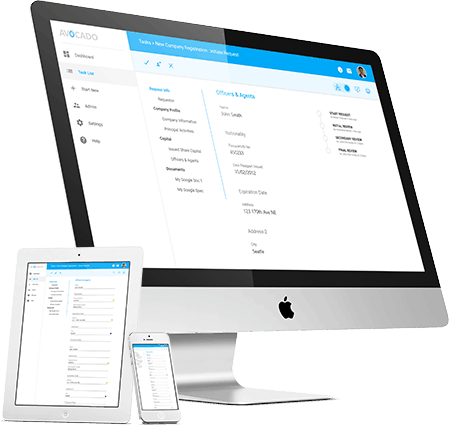In light of OECD’s enhanced compliance guidelines and changes in technology in January 2018 the Accounting and Corporate Regulatory Authority (ACRA) initiated an extensive review of the country’s corporate laws and regulatory framework. For this purpose, the Companies Act Working Group (CAWG) was created. The CAWG has reviewed 56 issues and recommended 36 legislative reforms, most of which are expected to be passed by the end of 2020 and will affect the Companies Act (CA), Singapore’s primary legislation regulating the conduct of companies. These reforms cover issues such as facilitating digitalisation; types of companies allowed and their financial reporting; matters relating to directors and company secretaries; safeguarding shareholders’ interests; and share capital and financial assistance. Provisions that have become outdated due to technological changes will also be updated to ensure that Singapore’s corporate laws and regulatory framework remain competitive with other jurisdictions. This blog post takes the perspective of a corporate administrator who is responsible for managing the compliance for a Singapore company, and describes how the key recommendations made by the CAWG may affect that person’s obligations.
Digitisation Initiatives
Dematerialisation of share certificates
A share certificate is the document verifying a stockholder owns shares of a company. Currently, companies in Singapore are required to issue physical share certificates to shareholders within 30 days of the transfer of shares, and within 60 days of the allotment of new shares. As of now, the Companies Act recognizes two types of evidence of title to shares:
- A certificate under the common seal or official seal of a company; and
- The electronic register of members maintained by ACRA for private companies.
The CAWG has recommended amending the act to end the requirement to provide physical share certificates. This makes sense, as ACRA has been maintaining the Electronic Register of Members (EROM) of private limited companies since January 3, 2016. If the recommendation becomes law, companies will no longer be required to issue paper certificates, and an entry in EROM would suffice to show evidence of share ownership.
The legislative change has the following goals:
- Making the process of share transfer more efficient by doing away with the preparation and signing of physical share certificates; and
- Allowing E-certificates to become the new norm, reducing the need to track paper documents.
Digital meetings
CAWG has recommended amendments to the law to allow general meetings and board meetings of a company to be held digitally.
The Companies Act currently provides for such meetings but does not specify how they are to be held. Some provisions imply that the general meetings must be held physically, for example rules on presence, voting, rights of attendance, discussion, and speech.
The practice of most companies in Singapore is to expressly set out in their constitution the manner by which a general meeting or board meeting is conducted, and many have already adopted provisions for holding meetings digitally.
So the CAWG has recommended amending the CA to clarify that, unless the constitution provides otherwise, a company may hold general meetings digitally and in more than one location.
The proposed changes will:
- Remove current ambiguities and give companies a clear understanding that digital meetings can be equally valid if conducted according to the provisions of the constitution;
- Benefit companies by saving time and costs involved in travel.
Digitisation of documents
The CAWG has also recommended certain other amendments related to digitisation. These would:
- Make it mandatory for companies to accept proxy instructions by electronic means, and
- Allow for a wider scope of documents sent to members, officers, or auditors to be transmitted electronically.
This recommendation is very welcome, as it avoids the need to deliver paper proxy forms and many other documents physically to a company, saving time and costs to everyone involved in the preparation, review, and execution of these documents.
New types of companies
With a view to simplifying compliance and reducing the costs associated with new financial reporting requirements for very small enterprises, the CAWG has proposed introducing two new types of companies: a “micro” company and a “publicly accountable company”.
A “micro company” is defined as a company that fulfils requirements for total annual revenue and total assets, each being not more than S$500,000 for the previous two consecutive financial years.
A “publicly accountable company” would be defined as:
- A company that is listed or is in the process of issuing its securities or other instruments for trading on a securities exchange in Singapore;
- A financial institution; and
- A company limited by guarantee registered under the Charities Act.
New and revised financial reporting obligations
Currently, companies incorporated in Singapore are required to prepare and present financial statements that comply with the Singapore Financial Reporting Standards (SFRS). This financial report must include the following documents:
- Report of Directors and Statement by Directors;
- Independent Auditor’s Report;
- Statement of Comprehensive Income;
- Statement of Financial Position;
- Cash Flow Statement;
- Statement of Shareholder’s Equity;
- Corresponding Notes to Financial Statements.
After the amendments are passed, a micro company that is non–publicly accountable will be allowed to prepare reduced financial statements comprising only of:
- The Statement of Comprehensive Income;
- The Statement of Financial Position; and
- Specific key disclosures.
This initiative will be welcomed by small companies and startups that are in the process of growth but not at a stage to incur the costs of audit, when simple bookkeeping would suffice to prepare their financial statements.
The CAWG has also recommended narrowing the scope of the current small company audit exemption so that it applies only to small companies that are not publicly accountable; in other words, publicly accountable companies will not be able to use the audit exemption provision.
Changes related to directors and company secretaries
Sole directors may be allowed to appoint themselves as company secretary
The CAWG believes that the CA subjects company secretaries to few obligations, and therefore sole directors could competently act both as a director and a company secretary. The change would help sole-director companies reduce their costs of doing business.
Directors’ disclosure obligations
Currently, a director of a Singapore company must disclose to the company the particulars of any shares of a related corporation that the director is a registered holder of, or has an interest in, and the nature and extent of that interest. As a company’s holding corporation is considered a “related corporation”, a director of a Singapore subsidiary needs to disclose his or her shareholdings and interests in the holding company as well.
Now CAWG has recommended that a director of a company that is a wholly-owned subsidiary of a foreign holding company should be exempted from disclosing his interests in the foreign holding company. This is in recognition of the fact that such disclosure obligations are often difficult to satisfy in practice, and may not be commercially viable.
Other amendments
Only the most important amendments affecting most Singapore companies are described above. You may find the full list of changes proposed by the CAWG on ACRA’s website.
When will the proposed changes take effect?
On July 20, 2020, ACRA published a consultation paper on the proposed amendments to the Companies Act. The public consultation period ended August 17. Now ACRA has to review the feedback and send the changes to Parliament. Presuming the relevant Bill passes Parliament, and is assented to by the President, it will come into force on a date appointed by the Minister by notification in the Gazette. From past experience, the entire process from when ACRA kickstarts the public consultation to when the amended CA is passed typically takes about three months. So we may expect the amendments to be passed by the end of October 2020.
What should you do?
Although most of the proposed changes are straightforward and do not require immediate actions from company management, below are some of our recommendations for Singapore companies. Your corporate service provider should address these issues for your company.
Dematerialisation of share certificates
The recommendation to stop issuing physical share certificates is only enabling, and not mandatory or prescriptive. Existing paper share certificates currently held by shareholders would not be automatically revoked. Singapore companies have the option of deciding when, and if, they wish to avail themselves of this provision.
Digital meetings
When the changes are passed, companies will be required to specify in their constitutions whether and how they intend to hold digital meetings. Of course, as the proposed amendments are enabling, rather than mandatory or prescriptive, companies that prefer to hold meetings only in a traditional, in-person manner may still elect to do so.
Sole directors acting as company secretaries
If this recommendation is accepted, sole directors are advised to undergo training to understand and fulfil the obligations of a company secretary, so that their business stays fully in line with all the compliance regulations.
Conclusions
Singapore is keeping up with the improvements in digital technology to upgrade its corporate legislation. ACRA’s proposed amendments address many such improvements in compliance legislation, in particular those arising in response to COVID-19. The amendment process for the Companies Act has passed the public consultation stage; however, the proposals may still be subject to change and fine-tuning.
About CorporateServices.com
Headquartered in Singapore, CorporateServices.com, empowers global entrepreneurs with information and tools necessary to discover Singapore as a destination for launching or relocating their startup venture and offers a complete range of company incorporation, immigration, accounting, tax filing, and compliance services in Singapore. The company combines a cutting-edge online platform with an experienced team of industry veterans to offer high-quality and affordable services to its customers. Contact Us if you need assistance with setting up a new Singapore company or if you would like to transfer the administration of your existing company to us.
Share this Post

